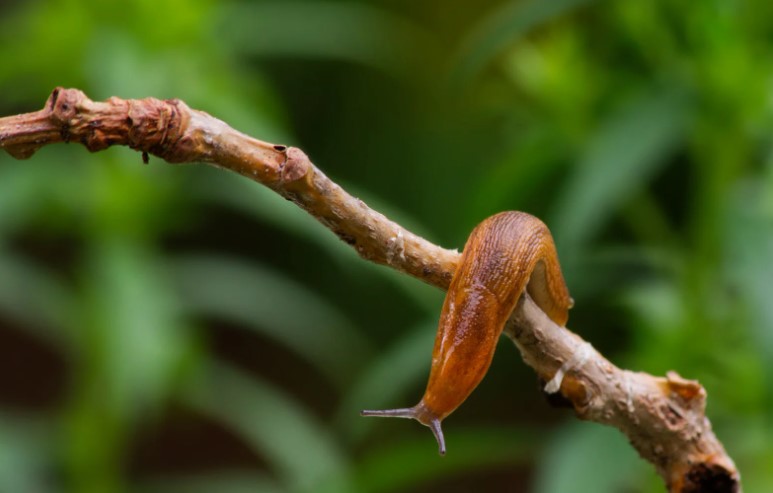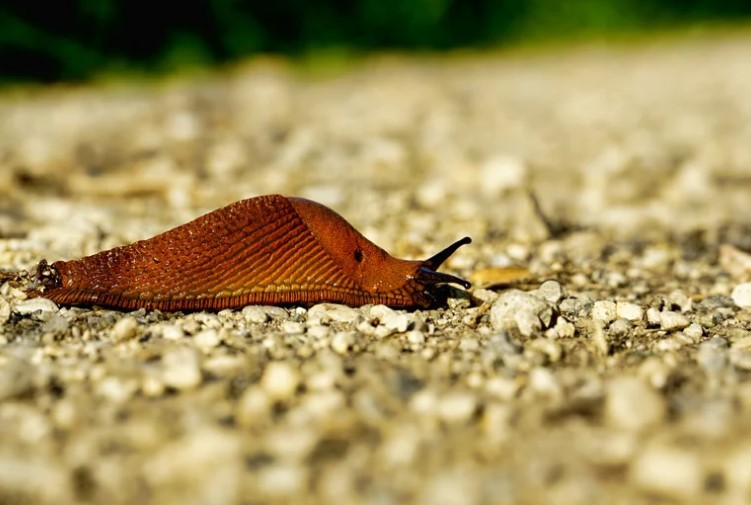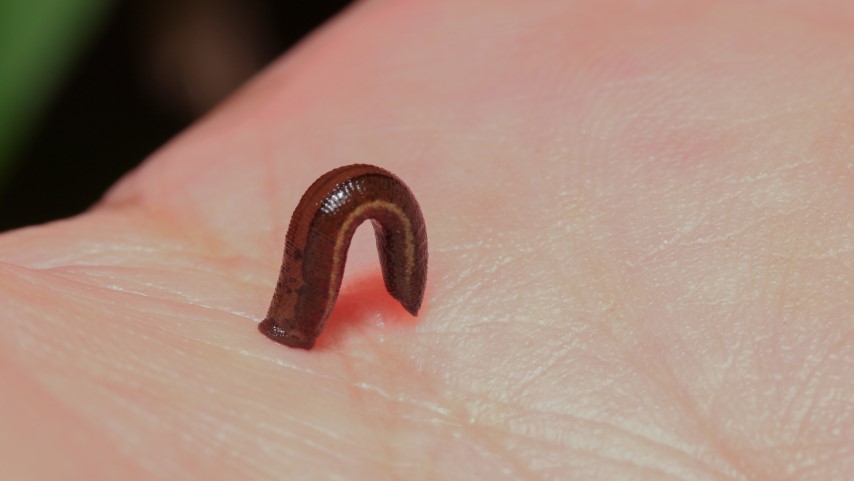- Understanding the Slug Life Cycle in the UK
- Where Do Slugs Live and Thrive in UK Homes & Gardens?
- What Are the Signs of a Slug Infestation?
- How Long Do Slugs Live in Different Conditions?
- Do Garden Slugs Have a Purpose in Nature?
- What’s the Longest Living Slug Ever Recorded?
- How I Got Rid of Slugs? – The Natural Way
- Table: Slug Life Expectancy in Various Environments
- Final Thoughts On How Long Do Slugs Live: Know Your Enemy (and Outsmart It)
- Quick Answers: FAQs On How Long Do Slugs Live
When I first spotted those slimy trails winding across my kitchen tiles, I thought, “What on earth is leaving this behind?” Turns out, it was slugs—quiet, slow-moving invaders sneaking in from the garden.
That discovery sent me down a bit of a rabbit hole: how long do slugs live, really? And more necessarily, how do I stop them from demolishing my plants and crawling into my home?
If you’re dealing with the same questions, you’re in the right place.
Let me walk you through everything I’ve learned about slugs—how long they live, where they hide, and how to deal with them the natural way, especially here in the UK.
Understanding the Slug Life Cycle in the UK
What’s the average lifespan of a garden slug?
Believe it or not, most slugs live for about 1 to 2 years. But if conditions are just right—plenty of moisture, steady food sources, and no predators—they can stretch that to 2 or even 3 years. That’s a long time for a creature that spends most of its life in the dirt!
What’s the full lifecycle of a slug?
- Eggs – Laid in damp, hidden spots like under leaves or stones. A single slug can lay up to 300 eggs a year.
- Juveniles – Hatch and grow slowly, usually over several months.
- Adults – Once mature, they initiate the cycle all over again.
Depending on the species and the weather, the whole cycle can wrap up in just a few months.
When are slugs most active in the UK?
You’ll see the most slug activity from March through October, especially after it rains. They come out at night or early morning when it’s cool and damp, then hide away during the day.
Where Do Slugs Live and Thrive in UK Homes & Gardens?
Why do slugs love damp spaces so much?
Slugs don’t just like moisture—they need it to survive. Their bodies are made up mostly of water, so without damp surroundings, they dry out fast. Outdoors, they’re often under pots, inside compost heaps, or buried in mulch.
Indoors, you’ll find them in basements, kitchens, and bathrooms—anywhere they can stay moist and hidden.
How are slugs getting inside my house?
They’re sneaky little things. Slugs can squeeze through tiny cracks in door frames, window vents, and even drainpipes. If the weather’s wet and your home is warm, it’s an open invitation.
Could I be mistaking slugs for other pests?
Definitely. Young slugs, especially, can look like other common UK pests like cutworms, leatherjackets, or even millipedes. The giveaway is the shiny slime trail they leave behind.

What Are the Signs of a Slug Infestation?
How can I tell if slugs are damaging my plants?
You’ll usually notice:
- Irregular holes in leaves (mainly lettuce, hostas, and strawberries)
- Shiny, silver trails across the soil or foliage
- Seedlings disappearing overnight
If any of that sounds familiar, slugs are likely the culprits.
What should I look for inside the house?
Indoors, look for:
- Slime trails on the floor or carpet
- Slugs under appliances or kitchen cabinets
- A musty smell from damp corners (a sign they may be hiding there)
What do slime trails actually mean?
Those trails assist slugs spot their way back to food. So if you’re seeing trails consistently, it’s a sign they’ve set up camp nearby.
How Long Do Slugs Live in Different Conditions?
Do slugs live longer indoors or in the garden?
Indoors, slugs usually survive a few months to a year—mainly depending on how dry your home is. Outdoors, especially in moisty damp gardens or compost heaps, they can live 2–3 years if they avoid predators.
How long can a garden snail or slug survive underwater?
Slugs can survive underwater for a few hours, and some can stretch it to a few days in oxygen-rich water. But they’re not aquatic creatures—they need to breathe, and too much time submerged will drown them.
Can slugs live without food or water?
Without food, a slug might last up to a week, but without water? Not long at all. Just a day or two in dry conditions can dehydrate and kill them.
How do slugs handle extreme weather?
Slugs are surprisingly adaptable. During dry summers, they’ll burrow into the soil to stay cool. In winter, many species go dormant—almost like hibernating—until spring returns.

Do Garden Slugs Have a Purpose in Nature?
Are slugs actually useful?
Yes, as annoying as they are, slugs do have a job. They break down decaying plant material and help recycle nutrients back into the soil. Consider them as part of nature’s compost group.
How do they affect compost and soil health?
In compost heaps, slugs help accelerate decomposition, breaking down food scraps and plant waste. But be warned: too many slugs in your compost can turn it into a breeding ground.
When do slugs go from helpful to harmful?
Once their numbers get out of hand—and they often do—they can destroy young plants, spread disease, and invite other pests into your garden.
What’s the Longest Living Slug Ever Recorded?
What’s the record for slug longevity?
The North American banana slug can live up to 7 years in ideal conditions, though that’s rare. Here in the UK, species like the great grey slug typically live for 2–3 years at most.
Why does the environment matter so much?
Humidity, food, and shelter are key. Slugs living in protected spaces like compost bins or under mulch live longer than those exposed to predators or dry conditions.
Can slugs survive UK winters?
Yes, many UK slugs simply go dormant during winter. They’ll hide in deep soil, mulch, or compost piles and emerge when it warms up.

How I Got Rid of Slugs? – The Natural Way
What natural slug control methods actually work?
These are some that worked in my own garden:
- Copper tape around plant pots and doorways
- Beer traps sunk into the soil (they love yeast)
- Crushed eggshells or sharp gravel to deter crawling
- Hand-picking at dusk or dawn (yes, I’ve done it!)
- Encouraging predators like frogs, hedgehogs, and bird
How did I stop them from coming inside?
- I sealed gaps around doors and windows with weather stripping
- Made sure to fix leaks and reduce damp areas
- Used essential oils like peppermint as natural deterrents
- Placed copper strips near door thresholds
What plants naturally keep slugs away?
Some great slug-repelling plants for UK gardens include:
- Lavender
- Rosemary
- Foxgloves
- Ferns
- Geraniums
These either have strong scents or textures that slugs hate.
Table: Slug Life Expectancy in Various Environments
| Environment | Lifespan Estimate | Common Risks |
| Outdoor Garden (UK) | 1–2 years | Predators, weather extremes |
| Indoors (damp areas) | 6–12 months | Dry air, lack of food |
| Compost Heaps | 2–3 years | Overcrowding, overheating |
| Underwater | Few hours to a few days | Drowning, lack of oxygen |
Final Thoughts On How Long Do Slugs Live: Know Your Enemy (and Outsmart It)
Slugs might be slow, but when it comes to taking over your garden or sneaking into your home, they’re surprisingly efficient.
Understanding how long do slugs live, where they hide, and how they reproduce gives you the power to take action before things get out of hand.
By combining a few natural control methods and keeping an eye on damp areas, I was able to reduce the slug problem drastically in my own home and garden—and you can too.
Quick Answers: FAQs On How Long Do Slugs Live
1. Can slugs live without a shell like snails?
Yes—they’re basically shell-less snails and evolved that way.
2. Are all slugs bad for my plants?
Not necessarily. Some prefer decaying matter, but when food is scarce, even those can start eating live plants.
3. How fast do slugs reproduce?
Very fast. Some slugs can lay hundreds of eggs each year, and since many are hermaphrodites, every one of them can reproduce.



0 Comments